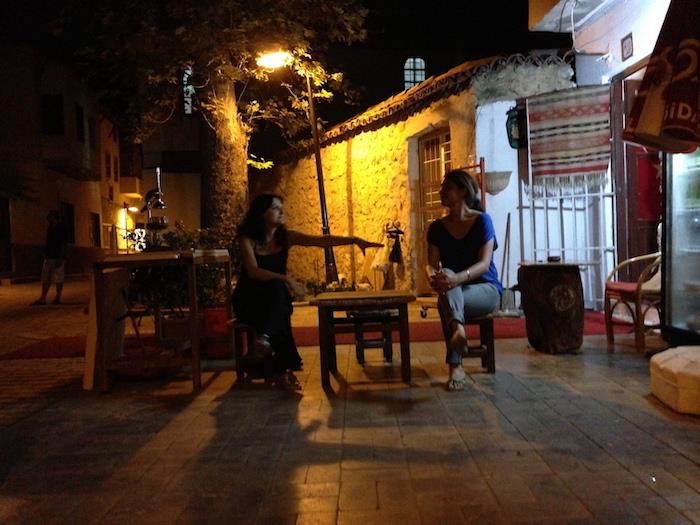The Russia effect
Turkish Antalya, which was one of the most popular and thriving tourist destinations a year ago, is apprehensively approaching a new tourist season. Some time ago, the local Chamber of Trade and Commerce published catastrophic figures in its report entitled “The Effect of Russian Sanctions on Antalya’s Economy and the Suggested Measures.
According to this document, 1/3 of Antalya’s total revenues were, somehow or other, linked to Russia and Russia was the recipient of 2/3 of agricultural exports from this region.
The incident with the Russian jet that violated Turkish airspace and was downed in November last year, as well as the subsequent Russian sanctions, have, as of now, reduced the number of Russian tourists visiting Antalya by 18%. Aside from direct revenues, the discounts that the tourist complex owners offered in their efforts to attract tourists, have also hit the region’s economy hard.
The Chamber of Trade and Commerce of Antalya has drawn up four possible scenarios on how the situation can possibly further develop. In three of them, Antalya’s budget this year will sustain losses amounting from $1-9 billion US.
Scenario 1–the worst-case scenario
Antalya will lose the entire Russian market–about 3.5 million tourists. The damage inflicted to the budget in losses will amount up to $5billion US, resulting in a loss of $8-9billion US in revenue for the country’s economy as a whole.
Scenario 2–the moderate scenario
Antalya will lose 90% of the Russian market. The losses within the region will amount to $3billion US.
Scenario 3–the optimistic scenario
Antalya will lose half of the Russian market and revenue losses will be approximately $1billion US.
Scenario 4–the least likely scenario
Russia will lift the sanctions, thus putting an end to the crisis in the region. The civil war in Syria will end. The European markets will recover.
Action plan
The last scenario is the least discussed by the Turkish government and because of this all the plans drawn up are related to the attempts to diminish the losses from Russian sanctions.
One of their ideas, to hold the Expo 2016 tourism fair, is not ruled out, as the Turkish media reports. It is considered to be a major opportunity to promote the resort beyond the Russian market, with particular focus on the Chinese and Indian markets.
Another idea is to host concerts in Antalya and to invite such celebrities as Madonna, Jennifer Lopez and Justin Bieber.

Tourists in the Antalya ‘Old City’
JAMnews dossier
According to Turkish governmental sources, Turkey’s economy is linked to Russia through the following channels:
Import
-Russia is Turkey’s main energy supplier. 56% of Turkey’s consumed natural gas is supplied from Russia. Moreover, some of Turkey’s oil (as well as metals and grains) is also imported to the country from Russia. The volume of natural gas and oil imports from Russia in 2014 made up 2.1% of Turkey’s Gross Domestic Product (GDP).
Export
Russia is ranked seventh among the countries that receive exported goods from Turkey. Foodstuffs, as well as textile, vehicles and machinery, are exported from Turkey. In 2014, exports of Turkish products to Russia accounted for 3.8% of Turkey’s total exports and 0.7% of Turkey’s GDP.
Tourism
Tourists from Russia made up around 12.2% of the 37 million tourists travelling to Turkey. Their portion of the country’s total revenue made up approximately $3billion US, i.e. 0.3-0.4% of the GDP.
Turkish business in Russia
Turkish companies are implementing a number of huge projects in Russia, especially in construction. The total value of such projects in the past three years amounted to $12 billion US. Furthermore, 87,000 Turkish nationals have been employed in Russia, including 55,000 in the construction industry.
Russian investments in Turkey
Russia was the fourth largest foreign direct investor in the Turkish economy in 2014. Russian investments in Turkey consisted of approximately $730 million US, that is about 0.1% of Turkey’s Gross Domestic Product (GDP).
Banks
In the banking sector, the connection between Turkey and Russia are of utmost importance. “Sberbank of Russia is an owner of Turkey’s eighth largest bank–“Denizbank. Five Turkish banks have subsidiaries in Russia, though the portions of their assets at the Russian market are relatively low.
A list of Russian sanctions on Turkey (sinse November 2015)
• A ban on the import of foodstuffs from Turkey.
• A curb on Turkish companies’ activities in Russia (though, it has not affected the ongoing construction jobs).
• A ban on the employment of Turkish nationals in the territory of Russia (this ban does not apply to the Turkish citizens already employed in Russia).
• A suspension of charter flights between Russia and Turkey.
• The Russian government’s recommendation to Russian travel companies to refrain from selling vacation tours in Turkey to Russian citizens.
• A prohibition on receiving services provided by the Turkish companies on international transportation companies.
• A suspension of bilateral economic cooperation programs, as well as commission sessions in the two countries.
• A suspension of visa-free travel for Turkish citizens entering Russia.
The European Bank for Reconstruction and Development (EBRD) assumes that if the conflict between the two countries is not resolved and Turkey fails to cut down the number of Russia-dependent spheres of economy, Turkey is expected to encounter a 0.3-0.7% decrease in GDP in 2016.
Based on the materials provided by Turkish media, namely the Hurriyet Daily newspaper, and governmental sources
The opinions, expressed in this article convey the author’s views and terminology do not necessarily reflect the views or opinions of the editorial staff.
Published on: 19. 04. 2016



















